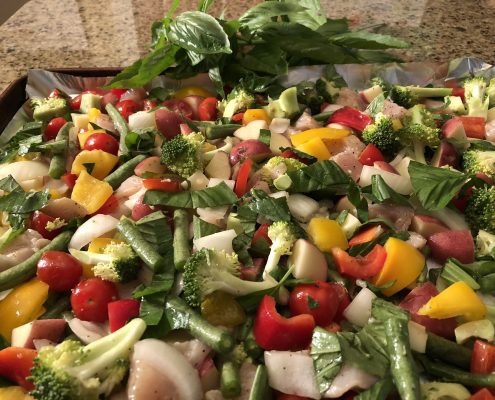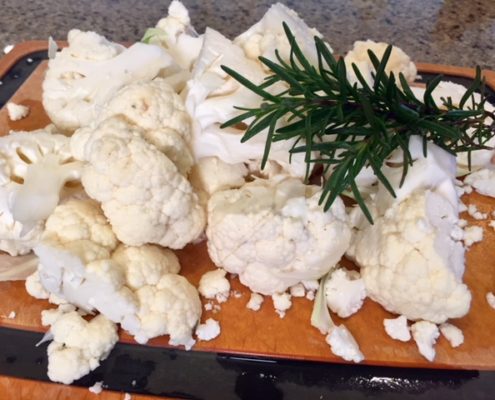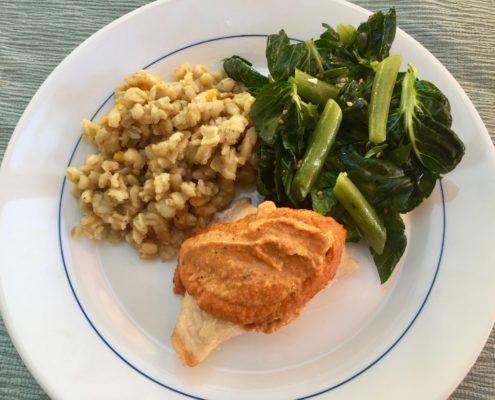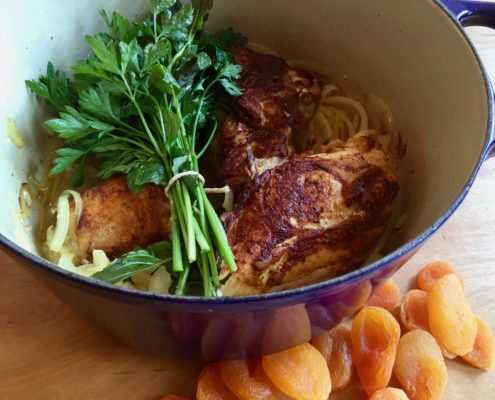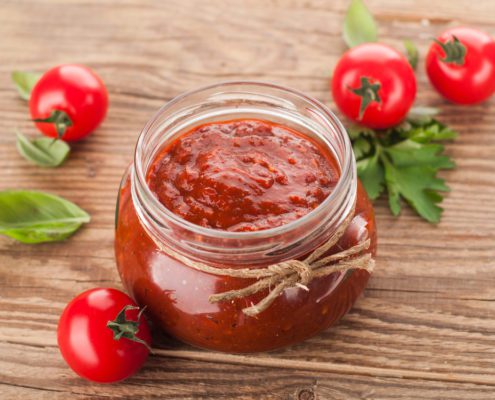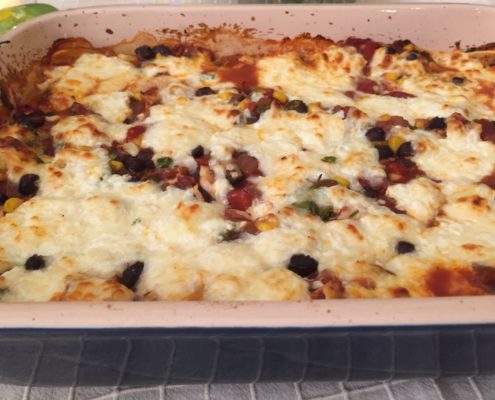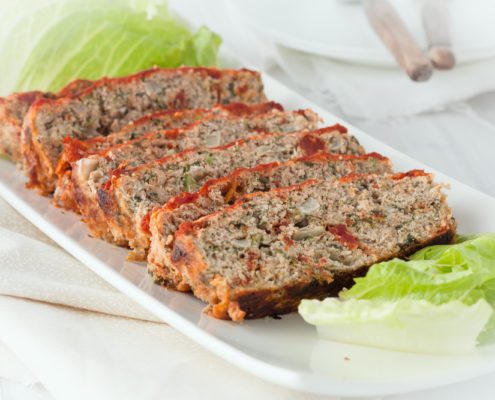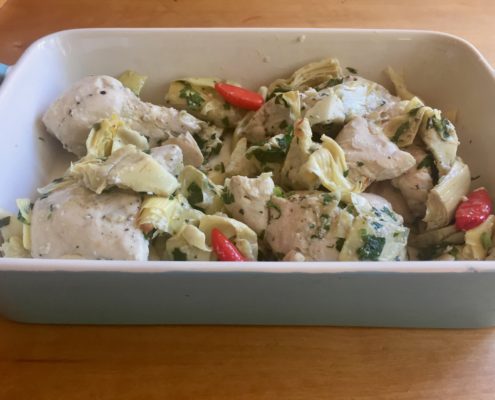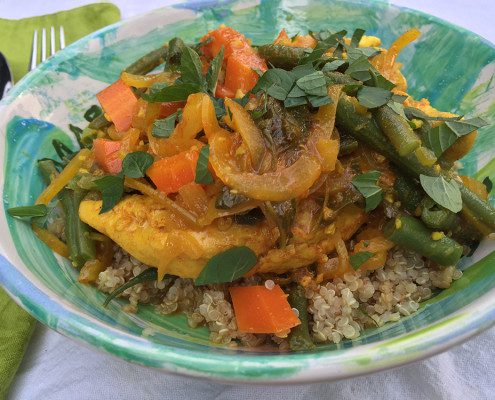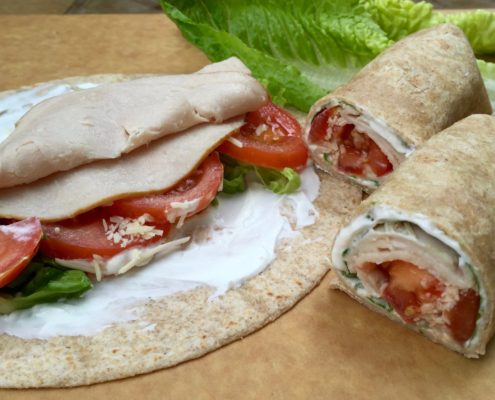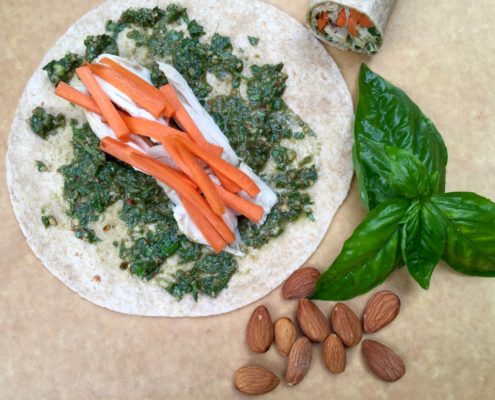Chicken seemed a healthier and more inexpensive option to beef; so as we radically reduced beef in our kitchen, we ate more chicken. But the more I learned about industrialized chicken, the more appalled I became.
However, instead of banning all chicken from my kitchen, I choose to make conscious choices about the source and quality.
My choice, when possible, is organic. The rules for organic meat production forbid use of antibiotics and hormones, must allow fresh air, sunlight, and freedom of movement. They must also use 100% organic grain (grown without the use of pesticides or artificial fertilizers) for feed.
[su_expanding_quote_without_link alignment=”full” source=”Nourishing Traditions, Sally Fallon” full_quote=”Although chicken is a perfectly good source of animal protein, frequent chicken consumption requires a cautionary note. We must be careful of the source of the chickens we buy. Battery-raised chickens are subjected to crowded living conditions and often substandard feed; they require frequent doses of antibiotics and growth hormones to reach adulthood. Many develop cancers and these cancerous chickens are not necessarily discarded. We advise you to find a source of organic, cage-free or pasture-fed chicken, which is becoming more available directly from farmers and in our markets and is worth the additional price.” short_quote=”Although chicken is a perfectly good source of animal protein, frequent chicken consumption requires a cautionary note. We must be careful of the source of the chickens we buy. “]
Organic is expensive, but it becomes more affordable by eating organic two or three times a month rather than two or three times a week. And also by buying the whole chicken rather than individual pieces, especially just chicken breasts. Almost always I’ve been able to request, when purchasing, that they cut the chicken into four or six pieces.
I also began buying turkey, especially ground turkey because it is a lean protein and rich in zinc and niacin both which we need for good health.
[su_expanding_quote_without_link alignment=”right” source=”SuperFoods Rx: Fourteen Foods that Will Change your Life, Steven Pratt, M.D., and Kathy Matthews” full_quote=”Turkey is a good source of niacine, vitamin B6 and B12, which are important for energy production. Niacin seems to be associated with lowering the risk for heart attacks.
Turkey is rich in zinc, which is critical for a healthy immune system. It helps promote wound healing and also normal cell division. It is a good source of the trace mineral selenium, which is involved in a number of functions including thyroid hormone metabolism, antioxidant defense systems, and immune function.” short_quote=”Turkey is a good source of niacine, vitamin B6 and B12, which are important for energy production. “]
What about “All Natural”? There are no real guidelines for “natural” animals to be fed organic grain, to be raised without using antibiotics, hormones, or other animal drugs; or be allowed freedom of movement and access to the outdoors.
That said, if I cannot buy organic, I will buy “All Natural”. But I will not buy industrialized poultry. I’d rather go without than be part of their suffering, their poor health (which affects our health) and the toxic impact on the environment.
[su_expanding_quote_without_link alignment=”right” source=”What to Eat, Marion Nestle” full_quote=”“All Natural” from huge corporate producers like Tyson Foods indicate, “Minimally processed, no artificial ingredients, all vegetable diet, no animal by-products.” These chicken were undoubtedly produced by typical industrial standards—confined under crowded conditions in batteries of thousands, treated with antibiotics to keep diseases from spreading, and slaughtered under hot and dirty factory conditions.” short_quote=”“All Natural” from huge corporate producers like Tyson Foods indicate, “Minimally processed, no artificial ingredients, all vegetable diet”]
We can help create demand for organic meats. The more people who ask for it will demonstrate to grocery stores and restaurants that there is a viable, consistent market willing to pay the price. The more people who are willing to pay a small share of the costs of production, the more costs will come down.
Organic poultry farmers do exist, are increasing in numbers and deserve support.

